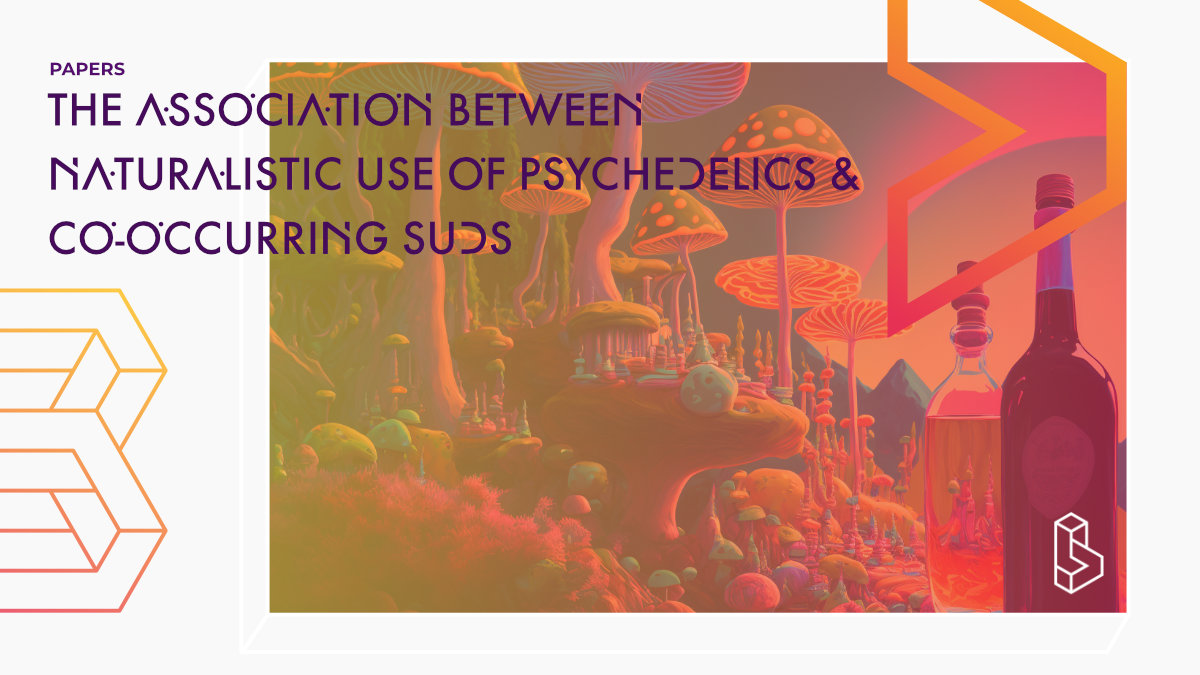This re-analysis of NSDUH survey data (n=56.000, 6.300 psychedelic users) finds that those who used LSD and psilocybin were more likely to have a substance dependency or abuse, those who used mescaline less likely, both compared to the rest of the survey group. As always, these are mere correlations and non-pharmacological (e.g. socio-economic) factors could explain both the positive and negative correlations.
Abstract
“Objective: Classic psychedelics (LSD, psilocybin, and peyote/mescaline) have been used to support addiction treatment in a variety of contexts ranging from ceremonial use to clinical trials. The aim of this study was to test the hypothesis that past naturalistic use of classic psychedelics would be associated with decreased prevalence of substance use disorder, when controlling for known confounders.
Methods: This cross-sectional study used 2017 NSDUH survey data to evaluate the association between past use of the classic psychedelics LSD, psilocybin and peyote/mescaline and past year substance dependence or abuse. We calculated adjusted odds ratios by multivariate logistic regression, controlling for a range of sociodemographic variables, use of non-psychedelic illicit drugs and mental health related variables.
Results: A total of 56,276 participants were included in this study. Past use of LSD and psilocybin were associated with increased odds of substance dependence or abuse compared to those who had never used psychedelics before, and this was more likely for those who had used LSD more recently. However, prior use of peyote or mescaline was associated with lower odds of past year substance dependence or abuse compared to people who had never used psychedelics before (aOR = 0.68, p < 0.001). Past use of classic psychedelics was not associated with nicotine dependence.
Conclusion: Past use of peyote/mescaline was associated with decreased odds of substance use disorder compared to people who had never used psychedelics before, while past use of LSD or psilocybin was not. It remains unclear whether this difference is due to pharmacological differences between these compounds or simply due to the context in which peyote/mescaline are traditionally taken. Future research should investigate why naturalistic use of different psychedelics is associated with different substance use disorder effects.”
Authors: Jonina Rabinowitz, Shaul Lev-Ran & Raz Gross
Summary of The association between naturalistic use of psychedelics & co-occurring SUDs
Alcohol and drug addiction pose a significant threat to public health. Current treatment for substance use disorders is multifaceted, with treatment outcomes dependent on the extent and nature of the patient’s problems.
LSD was investigated in the treatment of alcohol dependence in the 1950s, and there has been renewed interest in the use of classic psychedelics to aid in the treatment of SUD. These drugs induce hallucinogenic and mystical-type experiences and have anti-depressive, anxiolytic, and antiaddictive effects.
Find this paper
The association between naturalistic use of psychedelics and co-occurring substance use disorders
https://doi.org/10.3389/fpsyt.2022.1066369
Open Access | Google Scholar | Backup | 🕊
Study details
Topics studied
Population Surveys
Safety
Study characteristics
Re-analysis
Survey
Participants
56276
Humans

